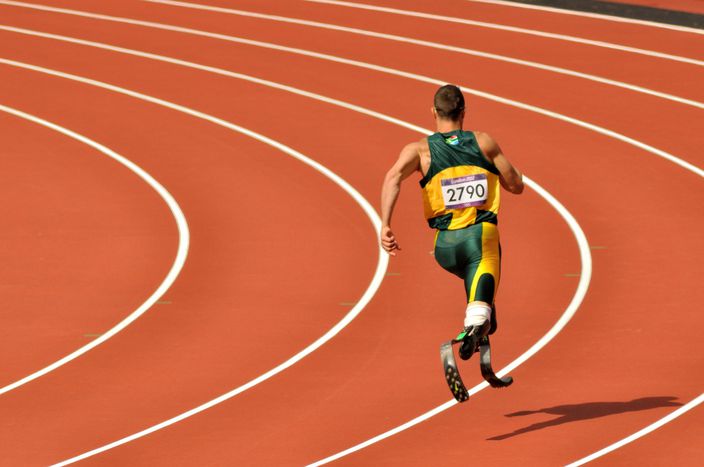
French media less enthusiastic about Paralympic Games, London 2012
Published on
Translation by:
Matthew DykesImagine diving into a pool with your eyes closed, running without any legs, playing table tennis without any hands, or playing rugby sitting in a wheelchair. These brave acts are what make the ‘other’ olympic games, the ones which barely made it onto our TV screens
Since 29 August, all eyes are again on London, where the 14th summer paralympics were held in the olympic park in Stratford, east of the city. Until 9 September, 4, 200 athletes from 174 different countries tried to bring home the 503 gold medals up for grabs.
84% of French wanted to follow paralympics
In London, the olympic torch was still burning until recently for this extraordinary event. The Spanish offered 300 hours of live coverage on RTVE to try and make up for their coverage of the Beijing paralympics. In France, however, the events are not broadcast by France Television, and are almost inexistent on the pages of L’Équipe, the French daily sports newspaper. Even if France Television has tried to backtrack by rebroadcasting the opening ceremony on France O (with a daily bulletin at 5pm), the paralympics have not sparked the same interest as the olympics.
Watch 'Boris Johnson welcomes you to London Olympics, between 27 July and 12 August'
A survey conducted by Toluna market research company for the French newspaper Ouest France showed that 84% of French people would like to follow the paraympic games on TV. 66% of these would prefer to follow them live. So are we dealing with a real lack of interest, or rather a lack of information? The start of the new school year does not, of course, provide the ideal conditions for comprehensive media coverage of the games, particularly after the considerable amounts of money spent by weeks of mobilising crew and setting up media equipment. Rémy Pflimlin, CEO of France Television, did admit on France Inter that ‘we could have done differently in extending our live coverage of the olympic games, especially with regards to the overlap with the paralympics. It is not the games themselves which we want to showcase, but rather the achievements of the athletes involved, and they are two very different things.’
Disabled sport - so what?
It is also difficult for spectators to get as excited about the paralympics, which are more complex, each sport comprising various categories in order to differentiate disabilities. Although the reality may seem cruel, it must also be said that there is little interest in disabled sport at a high level. Rather than despair, we must look at the progress that has been made, and as Christophe Barbier said in this video, we must also ‘rethink how we broadcast (these games), since it is not the games themselves which we want to showcase, but rather the achievements of the athletes involved, and they are two very different things’.
These paralympic games could, in fact, be the focal point of a rethink of the way in which we view disabled people in our society. However, we must choose between either a large viewership for commercial and financial ends, or a selfless, exemplary initiative by public television channels. The message of this event is powerful, and not just one of sport, notably due to each of its individual adventures and struggles. It is a goldmine, untapped by the media. Nowadays, the gold medal is a test of courage, and shows that a disability is in no way a barrier to great success.
Image: (cc) Will Clayton/ flickr
Translated from Jeux paralympiques : le sport au-delà des médailles



